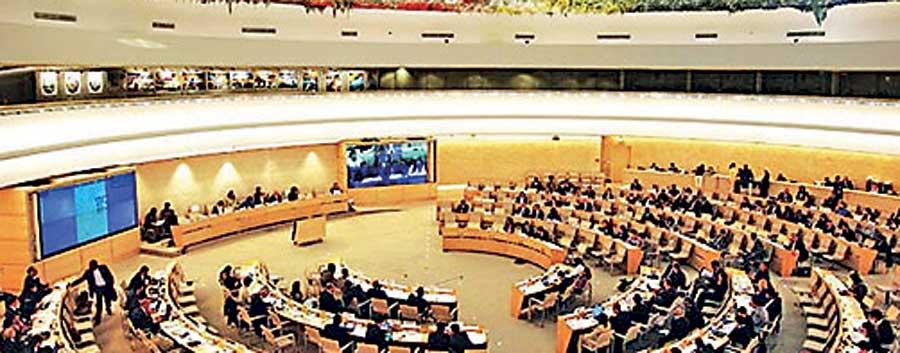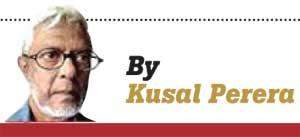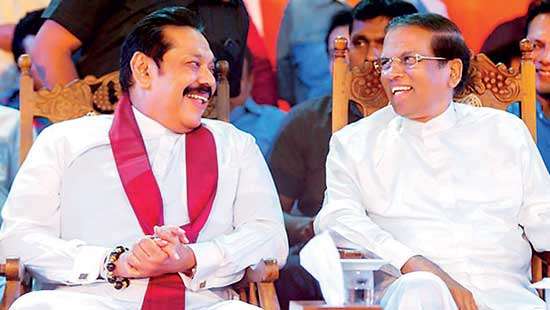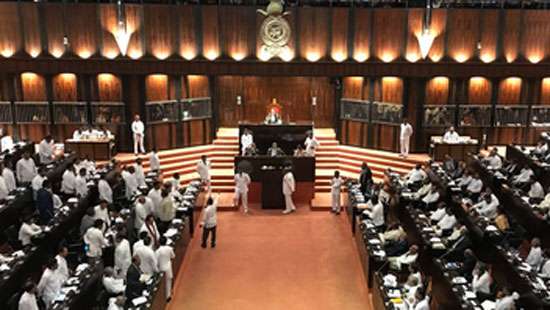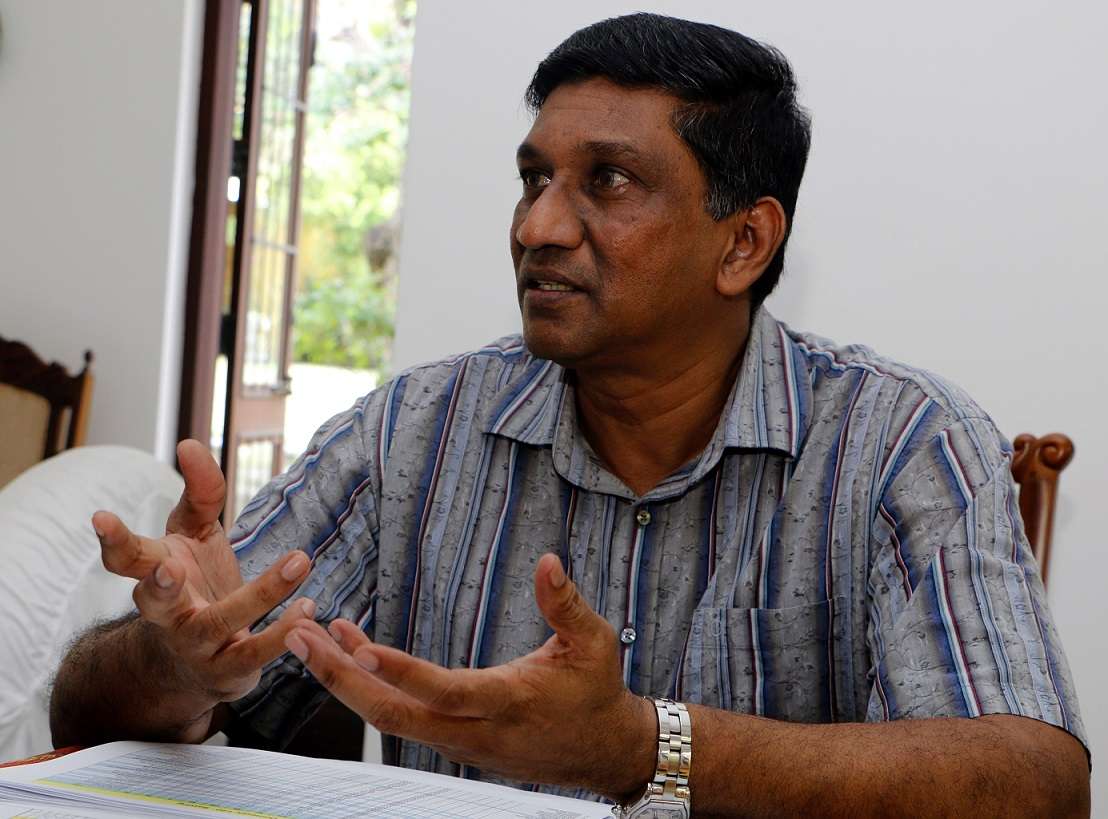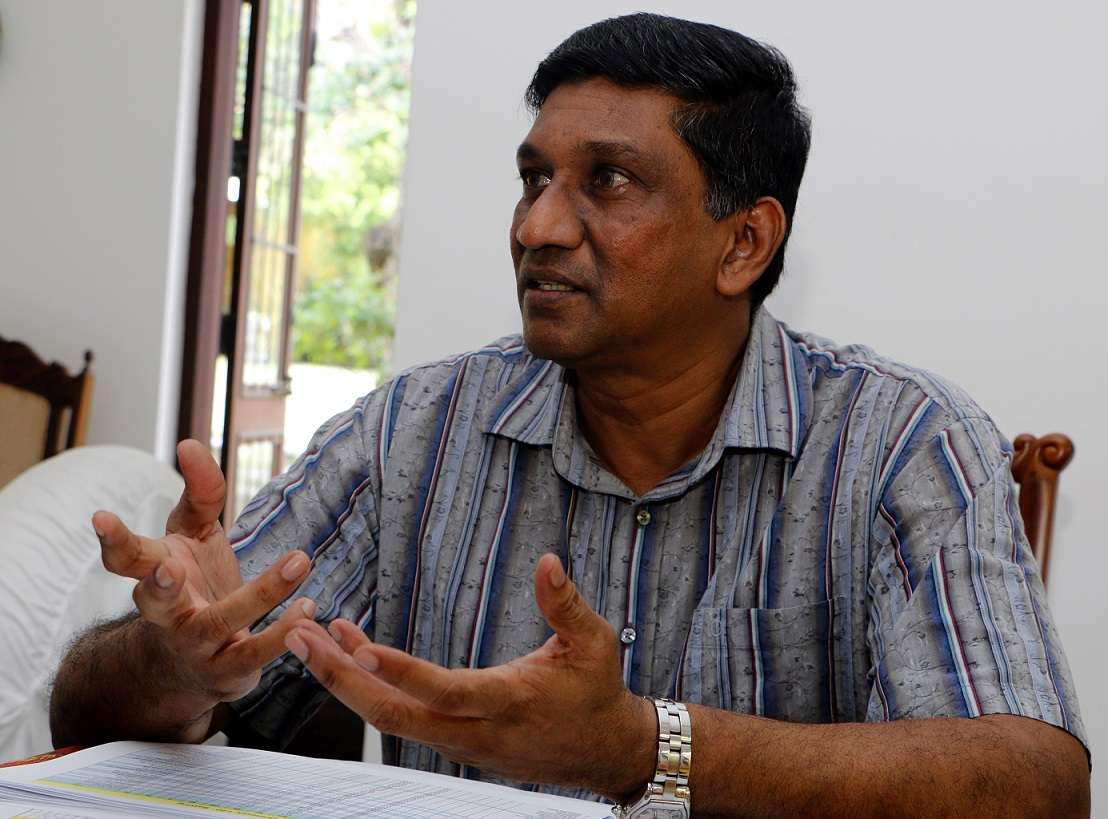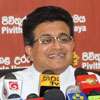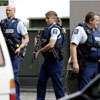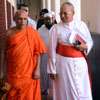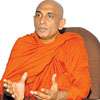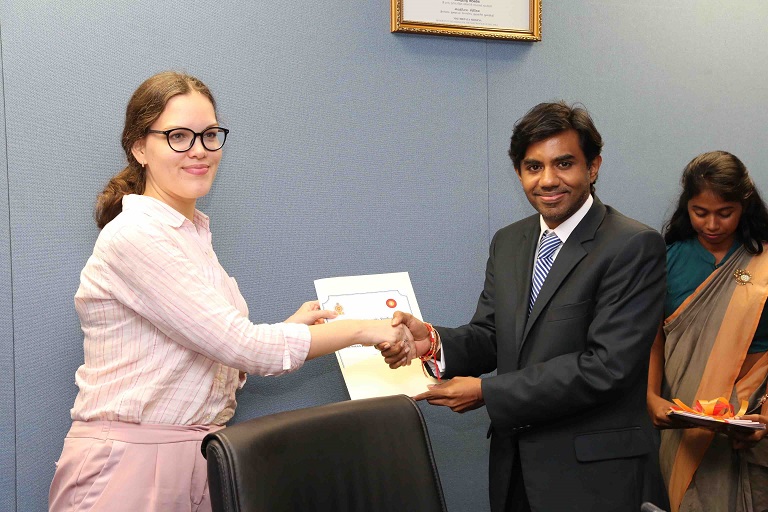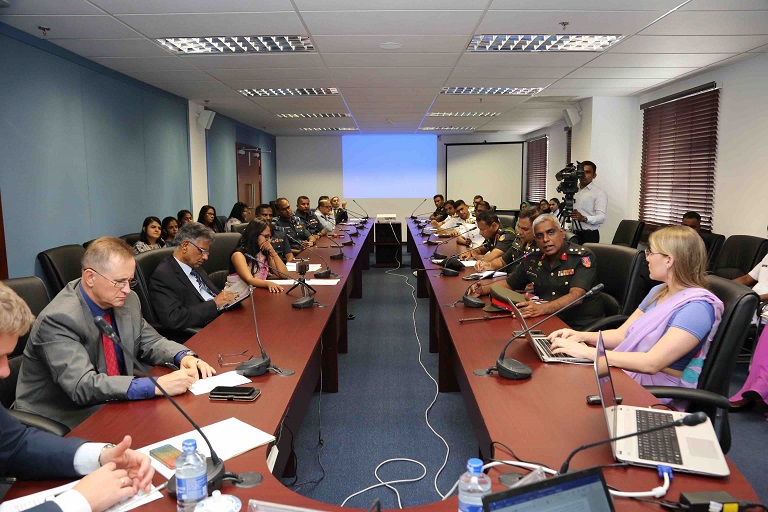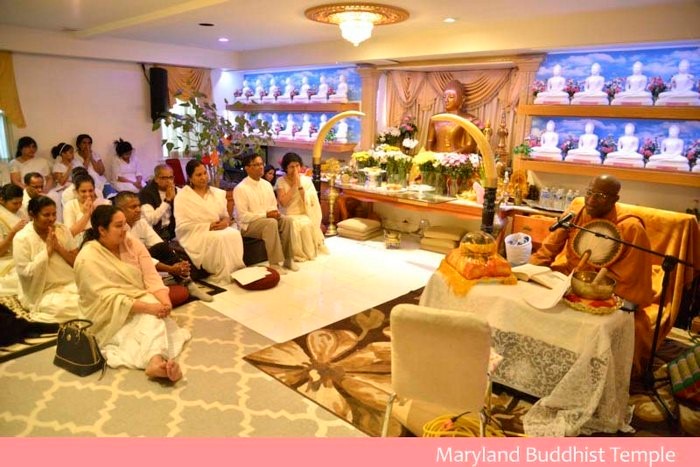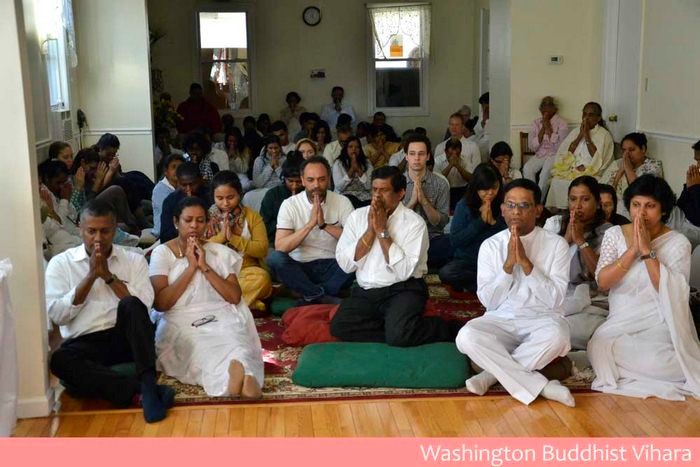Dr Sudath Gunasekara President Mahnuwara Jesta Purawesiyange Sanvidhanaya
( A revised article fist Posted on December 24th, 2014)
24.3.2019
Who are Kandyans
In this essay I refer to all those people who lived
within the territory known as the Kandyan
Kingdom at the time of
signing the Kandyan Convention in 1815 and their descendants irrespective of
where they live, here or abroad, as Kandyans. The area under reference covers
the whole territory within the legal definition of the Kandyan Kingdom
in 1815. However in this article I am referring to the problems of the people
living within the two provinces of Central and Uva only, since the Kandyan
Peasantry Commission covered only those two Provinces. These two provinces cover nearly ¼ the total
area of the country and they together claim about 1/5 the population of the Island, which is roughly around 4.million. Kandyans, particularly those who lived within
these two Provinces, were the heroic people who sacrificed everything including
their land, freedom and lives in tens of thousands in battle against three
powerful invaders, Portuguese, Dutch and English between 1505 and 1815 and
subsequently against the oppressive rule of the British colonial intruders in
their repressive and brutal massacres in 1817-1818 and 1848 freedom struggles
to retrieve the Motherland, the Sinhala nation and Buddha Sasana.
The Westerners used the word Kandyans to differentiate
the lowlanders from highlanders in this Island.
Robert Percival in 1803 (11 Years in Ceylon) called those who inhabited the
lowland and parts contiguous to the coasts
who lived under the dominion of
Europeans at that time ‘Cinglese” and those who lived on the hills-
Candians (Kandyans), which simply meant the people living on the hill country.
Together these two groups Percival called Celonese. Thereby they divided the
Sinhala nation in to two rivalry camps, Kandyans and low country people
(Udarata and Pahatarata minisu) for the first time in their 2500 year long
history. (The word ‘Kandyan’ was adopted
from the word kanda, which simply meant mountain in Sinhala).
Unfortunately the people of this country, without
realizing the future dangers of this colonial conspiracy also continued to use
these terms, that is Udarata and Pahatarata, in later years, sometimes
disparagingly of each group to the detriment of the unity of the great Sinhala
nation. The Sinhala nation has paid a very high price as a result. Therefore at
least now Sinhala people in this country must think afresh, throw this damn
udarata pahatarata katha and act as one indivisible nation called the
Sinhala nation, (irrespective of, in what part of the country or the world they
live) as we were known up to 1815 from the birth of this nation in the 6th
century BC or even before.
Prior to this division the people of this Island were one indivisible united nation called
Sinhalayo, which simply meant the people of the Sinhale, the name by which this
country was known for millennia. The fact that the name used to refer to this
country in the Kandyan Convention was also Sinahale, confirms this long
tradition. Even Tamils and Muslim minorities in this country were then known as
Sinahalayo, which means the countrymen of the Sinhale. To that extent they all
were Sinhalese, although ethnically, religiously they were different. (Muslims
even adopted Sinhala ge names Like Mudiyanselage, and Vidanelage etc and
married Sinhala women as they did not bring women from Arabia, thereby
integrating with the natives, unlike the present day communal Muslim
politicians like Hakeem who agitate for separate administrative mono Muslim
units and try to behave like original Arabians on Sri Lankan soil, although
they are only the hybrid set of people whom I have named as ‘Mu-Singhalayo–
offspring of Muslim men and Sinahala women).
Today we would never have had a nation called Sinhala or
a Country by the name Sri
Lanka if not for the heroic battles the
Kandyans, ‘marked by the pride of independence and warlike habits’ (as Percival
saw them), fought against these ruthless invaders from 1505 to 1848 and the
sacrifices they made. If they had not defended the country in battle we would
have definitely lost the 2500 year old Sinhala Buddhist Civilization forever
and this country would have been known today only as an insignificant tiny
Island in the Indian Ocean on the World map by the name of some unknown
European invader, explorer or a sea pirate just like America and many Islands in
the Pacific are known today. We would
also never have had Senanayakas, Bandaranaikes, Jayawardhanas or Rajapaksas as
our Prime Ministers and Presidents and we would have had Dicks, Toms and
Harries instead. We would also have had no Buddhist monuments like
Ruwanweliseya and thousands of Buddhist ruins as they would have been razed to
the ground by the invaders.
As such the whole credit for defending and protecting
this 2500 year old Sinhala Nation, Sinhala Country and the unique Sinhala
Buddhist civilization should squarely go to these heroic and patriotic people
called Kandyans. Therefore all Sinhalese
should be ever grateful to those great people for having protected this country
and the Sinhala race from extinction, for them.
Although such is the historic realty it is a tragedy
that, apart from compiling the Kandyan Peasantry Commission (KPC) Report that
was published under Sessional Paper XV111 1951 by the then government, none of
the post independent governments has at least faintly recognized the sacrifices
these people have made in history and made any genuine attempt to ameliorate
the problems of Kandyan people or taken suitable steps to rectify the
historical injustices inflicted upon them by the invaders. Similarly they also
have miserably failed to restore their lands and birth rights they had lost in
the battles led by national heroes like Keppetipola, Gongalegoda Banda and
Weera Purana Appu against the invaders, in return to the heroic sacrifices they
made to protect this land to posterity, at least as a mark of gratitude.
What a bunch of ungrateful people we have been. Instead
of recognizing and engraving their due place in rock, all governments have
forgotten and betrayed them throughout history.
Having neglected them politically, economically and socially, today they
have been reduced to mere paupers and refugees in their own motherland where
they have lived, fought and died for 2500 years or more. Shame on all
governments responsible for this situation!
Kandyan Peasantry Report of 1951 had identified
landlessness as the main problem among the Kandyans. In 1949 it was 39,000. But
today it is over 200,000. The other problem areas identified were roads,
irrigation, soil erosion and land degradation, education, health facilities,
housing, unemployment and poverty. These problems remain unsolved and they have
been so acute that today Kandyan areas are rated as the poorest in the whole
country. The KPC Report recommended the
setting up of a high powered Development Board. This was indeed a super Authority
and an excellent institutional framework, but it never saw the light of the day
up to date. In 1953 the Cabinet accepted the recommendations of the Commission
in principle and a six year development Programme was prepared under the
direction of the then Minister for Home Affairs A. Ratnayaka, incorporating the
major recommendations of the Kandyan Peasantry Commission.
But it was only in 1958, a
C grade sub-department called the Kandyan Peasantry Co-ordinators
Department was created to implement that programme. It was placed under a
toothless coordinator whose function was merely to disburse limited funds among
other line departments for haphazardly selected and scattered minor road
development and other programmes. As against the fully pledged and powerful
Development Authority proposed by the Kandyan Peasantry Commission, the new
department was only a tiny mole. Subsequently the coordinator was renamed as Commissioner in 1964 and the department was upgraded
to B class. Then it went in to a deep and long slumber for about 25 years. In 1989 a Project Ministry was created under the Ministry
of Mahaweli Development and they renamed it as the Ministry
of Upcountry (may be feeling shy to use the word Kandyan) Peasantry Development.
Meanwhile in 1993 JICA (Japan International
Cooperation Agency) also made a study of the project area that resulted in the
preparation of a ten-year Master Plan. The main emphasis of this plan was
agriculture and rural development. It estimated the cost of implementation of
the ten-year programme at RS 15.4 billion. The plan
period ended in 2003 with zero results. Again a new organization called Sri Lanka Udarata Development Authority (SLUDA) was
established on 24th August 2005 under Act No 26 of 2005 again for
identifying, formulating and coordinating, the implementation of development
projects within the Udarata Area”. It was packed with political stooges and
made another siphon only for them to suck the meager public funds. It also died a natural death in January 2014 with its closure to accommodate the Divineguma, with no service done to
Kandyan peasants. Divineguma was a combination of the Kandyan Peasatry Com
Dept, SLUDA, Southern Development Authority and Janasaviya
Now you see how all governments have deceived the Kandyan
people for 66 years, playing a game of hide and seek policy at the expense of
1/3 of the nation’s population for whom the entire nation is indebted for
defending the country for 350 years against the enemy. Beside some scratchy
works like few useless roads here and there and few school buildings, the only
development that had taken place was report writing and mere lip service only
to ‘ameliorate” the socio-economic conditions of the Kandyan Peasants.
In this backdrop, if you observe carefully the sequence
and the manner in which this subject has been handled for the past 66 years you
will note how reluctant and lethargic and deceptive the successive governments
have been in handling the problems of the Kandyans. The meager and ridiculous
financial allocation of Rs. 358,691,957 provided (over a period of 33 years
from 1961 to 93) to rehabilitate nearly 1/3 of the total population in the
country spread over almost 1/3 the area of the country who fought heroically
and paid the biggest penalty for independence of the motherland, further proves
this indifference displayed by the then governments towards Kandyans.
The foregoing brief note summarizes the ill-treatment all
successive governments have displayed towards the Kandyans over the past six
decades until, finally both the Department of Kandyan Pesantry Rehabilitation
and the Udarata Development Authority (SLUDA) were wounded up by the then
Government in Jan 2014.
The demise of the Kandyan Peasantry Commissioners
Department
This decision is the latest betrayal in this long chain
of ill treatments and conspiracy by all governments against the Kandyans. I see
this as the climax of the long chain of betrayals of the Kandyans. With this
act they have finally killed and buried for good, not only the subject of
Kandyan peasantry rehabilitation that never took off the ground for 56 years
but also the patriotic tribe of proud Sinhala people called Kandyans, as they
were dubbed by the British. It is more
than evident now that closing down the Kandyan Peasantry Department and the
Udarata Sanwardhana Adhikariya in January 2014 has completed the last rituals
of the Kandyan peasants. The Kandyan Peasantry Commissioners Department and the
Udarata Sanwardhana Adhikariya were replaced by the Divineguma Development
Department on 8st Jan 2014. It is reliably learnt that this new super
department at the moment does only Samudhi work, though the office in the
central region operates from the former KPC office at Peradeniya. All
activities pertaining to Kandyan Peasantry Rehabilitation has completely come
to an end. Why the then Government did this treacherous act against the
Kandyans is the million dollar question, I ask from all those responsible for
this anti Kandyan decision?
I do not question the rationale for a separate national level
super Department with such super powers and resources called Divineguma since
it constitutes a separate issue. Why that Government decided to close down the
Department of Kandyan Peasantry Rehabilitation which was the only Government
Department set up on the recommendations of the Kandyan Peasantry Commission
Report (the most comprehensive Reports on the problems of Kandyan people with
down to earth recommendations to address the problems of these areas). The KPC
Report was undoubtedly one of the best documents ever produced in this country
by eminent people for the rehabilitation and amelioration of historical
injustices inflicted upon a set of patriotic people who had lost everything for
the sake of posterity in the process of the heroic battles they fought against
the enemy over a period of 350 years, with no parallel perhaps in any other
country even though it has failed to touch upon
the three vital issues of Kandyan
Rehabilitation namely a) the failure to address the issue of restoring the
physical satbility of the Central hills country, the geographical Hadabima of
the country, b) the landlessness and the
need to restore the lands to its original owners and finally C) to address the
serious socio-economic and political problem of 1.2 million Indians forming an
Indian enclave right at the center of the country, that could develop in to a
big threat to the independence of this country.
Therefore I see the closing down of the KPC Department as
the biggest disgrace and betrayal against the Kandyan people
by any Government in this country. The Kandyan Sinhalese, though they keep
silent for obvious reasons like ignorance of what happens under their own noses
and fear of political repercussions and mainly due to absence of enlightened
and fearless leaders among them to fight
for their rights, will never forgive the government or those so-called
representatives voted for this ill-conceived and treacherous bill that has
deprived 1/3 the population of this country nearing 4 million of their
legitimate rights. Therefore I request
the government to immediately re-establish the SLUDA they have abolished in Jan
2014 and convert it to the Kandyan Peasantry Development Authority recommended
by the KPC in 1951 at least now and hand it over to a competent set of men who
are knowledgeable and committed to implement the recommendations of the Kandyan
Peasantry Commission with suitable adjustments.
That would be the highest honour one could
pay to the Kandyans who were in the vanguard
in defending the motherland and the Sinhala nation for 350 years. That will also help the Government to rectify
the wrong done to Kandyans by the Government by closing down the only state
institution, even though it was lifeless,
that was there to alleviate their grievances even in a marginal way. I
can vouch that, for politicians, this will be a golden opportunity to win over
their votes. If this is not done
immediately, I don’t think President Rajapaksa or any one in his Government has
any right under the sun to ask for the vote of a single Kandyan man or women,
as it is his Government which is
responsible for this heinous crime of
closing it down. One must also remember that closing down of the Kandyan Peasantry
Department is both an insult and a deprivation as well, not only to the people
of these two Provinces but to all those who are called Kandyans living all over
Sri Lanka and even abroad.
Conspiracy to remove all traditional Villages
in the Knuckles region.
Adding insult to injury currently a more
serious conspiracy is taking place to chase out all Sinhala people from the
hill country under the guise of environmental protection and ecological reasons
taking refuge under the recommendations of ICUN, a Geneva based international Agency. Under this
proposal Knuckles region was declared as a Conservation Forest in 2002 and
again an Environmentally Protected area in 2007 and action has already being
initiated to remove all the people from traditional villages, 100 or more
around the Knuckles mountains that had been there from 3rd, 2nd and 1st
centuries BC. sometimes going down to even 500 ft msl in certain villages like
Meemure, while keeping deaf, blind and dumb on one of the worst ecological
devastations in the world that has been going on for centuries on the central
hill country, through deforestation and resulting soil erosion, land
degradation, drying up of streams and underground water resources and thereby
pausing a serious threat to the survival of the entire life system in the whole
Island and the extinction of an ancient civilization from the map of the world.
I am
also compelled to ask the proponents of this move whether they consider frogs,
snakes, lizards and insects more important than human beings.
This move is an international conspiracy
against the Sinhala nation designed to wipe out Sinhalese from the central part
of the Island and convert it to the Home of nearly 1.2 m South Indian Estate
labourers, who were brought here by the British, in late 19th century to work
as cheap coolies on their plantations and left behind as a flock of stateless
men on our soil when they left the shores of this Island in1948. The present
Government also shamelessly continues the same betrayal by consolidating Tamil
settlements within the tea estates. As against the natives they are also
provided with unlimited political, economic and social benefits. All these
favours are afforded to them on the part of Governments to get their vote. But
none of them have the brain to understand the hidden conspiracy of the
international anti-Sinhala lobby deployed through their institutions like ICUN.
At every election and often even after, these estate Tamils put their vote on
sale by public auction and get their things done at the expense of the birth
rights of the natives. When they fail the auction they use the ‘election gun’
to fire the “vote bullet’ after every election to get in to the
government. What a shame on our politicians who betray their own nation for
short term political gain?
While all successive Governments have granted
privileges to this set of foreign collies who worked for the British up to 1948
and repatriated all they earned to India and continue persistently to treat
India as their Motherland in this manner, no government has restored even an
inch out of some 600,000 acres forcibly taken over by the British, to
Bhoomiputras who have lived there at least for 2500 years as the sole owners of
this land. Even after the estates were taken over by the Government in 1972
with so much fanfare no action was taken to ‘nationalize’ them by restoring
these lands to their original owners, who happened to be the natives who owned
them. No government has taken any tangible steps to date even to restore the
forest cover on the deforested hills or at least on degraded and marginal lands
which form the prime watershed of the Island.
No government seems to have realized the devastation these exposed high
lands do by carrying away millions of tons of soil annually in to
the sea turning the Heartland of the nation in to an unredeemable barren
sterile desert.
Governments
paving the way for a Tamilnadu at the center of the country
Meanwhile it must also be pointed out that no
Government has taken any action, to prevent the rise of a separate Indian Tamil
enclave, a Malayanadu, right at the centre of the country. Instead all regimes have allowed them to establish,
expand and consolidate, Tamil settlements in these areas that pauses a big
threat to the sovereignty of the future Sri Lankan State. The 13th Amendment to
the 1987 Constitution granted Sri Lanka Citizenship merely on an affidavit,
often bogus, even without a preliminary inquiry to all Tamil estate labour by
the JR government. Furthermore while
allowing direct foreign aid to flow freely from India and anti Sinhala and anti
Buddhist countries of the west to the plantation areas the government also has
provided the estate sector billions and appointed Ministers from among them
lavishly without any rational basis., with no regard to the threat they pause
to the future of the natives.
While this is how all the Governments have
acted with regard to the native Sinhalese, when it comes to Estate Tamils the
same Governments have denied the right of Sinhalese people displaced by
Victoria and Kotmale reservoirs due to their own actions and those displaced as
a result of Walapane earth slips to be settled within the estates due to
protest by estate Tamils and chased them out to the Dry Zone ( again as a part
of the major conspiracy to wipe out the Sinhala people from the Central Hill
Country), thereby uprooting them from their natural habitat. This is how our
politicians treat the natives as against the aliens. Why should the government
of Sri Lanka
get permission from South Indian estate Tamils, who had been here only for few
decades, to settle a Sinhala victim of a land slide on our own soil,
irrespective of where it is located? The
funniest part is that most of these estates belong to the state as they had
already been nationalized in 1970s. I wonder whether there is any other country
or Government in the whole world which treats its own native people in this
manner. Shame on all governments.
While they chase out Sinhala people from the
Hill country in this manner look at the swift action taken by the Government to
settle Estate Tamil victims of the recent Koslanda Tragedy and the speed with
which the Government has acted.
The Government has taken a decision to build
new houses immediately for those who have lost their line rooms due to the
Koslanda disaster. The Badulla District Secretary Rohana Keerthi Dissanayake
said. According to him, the required land has already been identified. The
Physical Planning Department and the National Building Research Organization
have examined these lands.
Mr. Dissanayake added that the Government
will commence building the houses once their recommendations are received. The
Badulla District Secretary revealed these details at a meeting held at the
Bandarawela Divisional Secretariat to make inquiries into the facilities
accorded to the displaced families. Bandarawala Divisional Secretary E.M.S.B.
Jayasundara was among those who joined in this meeting”.
(News.LK the Official Govt News Portal of Sri
Lanka 9th Nov 2014)
This is how the Sri Lankan Governments react
when Indian estate labourers are involved (who always treat India as their motherland and whose allegiance
is always with India)
in contrast to the stark indifference shown towards the Kandyan peasants. the
real bhoomipuras of the land. We have no objection what so ever as Sinhalese
and Buddhist for helping someone in trouble. But what irritates and hurts our
minds and hearts is the way they ill-treat the Sinhalese, the sons of the soil,
de facto as well as de jure heirs of this land, who have sacrificed so much and
so long in history to protect this nation for posterity. This clearly proves
how our own Governments treat Sinhalese as outcastes and while they embrace
outsiders and enemies of the nation with both hands just to win their vote.
Doesn’t this clearly show how all the post
independent governments have given in to estate Tamils for short term political
considerations while betraying the sons of the soil? Don’t these displaced
natives have a birth right to be settled in their own surroundings that once
belonged to them? Meanwhile these Governments also have not done anything to
solve problems like roads, irrigation, health and education of those poor
Kandyans who live in valley bottom villages wedged in by sprawling plantation
raj on the mountains. I only hope politicians will have the brain to understand
the difference between the political strength of nearly 4 m patriotic Kandyan
Sinhalese who treat this country as their one and only Motherland as against
1.2 m South Indian estate Tamils whose eternal allegiance is to India. I hope the President will take immediate
action to rectify this serious blunder in view of the forthcoming Presidential
election at least.
The deaf, dumb and blind so-called
representatives of the Kandyan areas
The present Parliament has nearly 100 if not
more representatives who are supposed to be representing Kandyan areas. In
addition there are also hundreds of Provincial Council members including five
Chief Ministers, 20 other ministers, five Governors and thousands of
Pradesiyasabha Members. We know that a good number of them are
non-Kandyans.
But
other than the Tamil and Muslim members who represent only the interests of
their own community, I think all others have been elected by the Kandyans.
Therefore isn’t it a tragedy and an unpardonable omission on their part that
there was not a single member in Parliament, Provincial Councils or the
Pradeshiya Sabha, either in the Government or the Opposition who had the guts
to stand up and speak one word against this gross ill-treatment and historic
betrayal in Parliament or any other forum on their own people who have voted
them in to power. Thereby all these members have collectively and individually
betrayed the people who have elected them. We know they have done so for
political survival as they knew very well that, from nomination day to the last
second and they sit in their seats at the respective councils, they depends
wholly on the pleasure of the party leadership, under the present ‘democratic’
system that prevails in our country. I pity them. But what a disgrace on their
part as the descendants of those proud
Kandyans who were once described by Robert Percival as a people ‘whose
countenance was erect, his looks haughty, his mien lofty and his whole carriage
marked by the pride of independence and they are men with war like habits’.
Alas where those lofty qualities of Kandyans are gone? Shouldn’t the present
day Kandyans be ashamed of their stupidity and servility which were unheard and
unknown in the days gone by.
Could any one of the present day
representatives honestly say actually as to whom do they represent? Today the
candidates for electorates are selected by the party leadership. Even if the
candidate happens to be from Timbaktu or be a polpitta people have no
choice but to elect him/her. As such they are not representatives of the people
and they are also not answerable to them either. Apart from the brain and the
inclination to serve the people they also have no feeling for the people,
because their survival solely depends on the will of the party leader and not
on the will of the voters. As such none of them, in my opinion, has a moral or
an ethical right to remain in their seats and enjoy the enormous and princely
benefits and perks of office at the expense of the poor people anymore under
the guise of representing them. Therefore all those who voted for this bill should
resign forthwith if they have an atom of self respect; I am sure which they
don’t have. If they don’t do so the people of these electorates should force
them to resign before they are physically chased out by the masses at the next
election.
It is also interesting to note that according
to the Task Force report of 2003, Kandyan areas fall within the poorest
category in the Island. The lowest human Index
of 0.694 for the Island is also reported from
the Kandy District. Similarly lowest per-capita income in the whole Island and the poorest infra structure facilities,
education and health facilities are also reported from Kandyan areas. What do
all these indicators show, Isn’t it a mirror image of the interest, lethargy,
indifference and the degree of commitment all successive governments have
displayed towards the Kndyan areas and their people. Does not this show the
degree of efficiency and the capacity of the politicians as well?
Had at least 1 % of the recommendations of
that wonderful Kandyan Peasantry Commission Report of 1951 been implemented by
the successive governments today the story of the Kandyan people would have
been much different. At the same time if the Nehru-Kotalawala agreement of 1953
had been implemented there would have been no Tamil Problem in the upcountry
areas as well. They would also have been naturalized and integrated to the Sri
Lankan society like the present day Kauravas and Salagama people in the South
western maritime areas who had migrated fro SW India
in the medieval times.. At least the present government should persuade
Arumugam Thondaman to ask his people to learn the language of the natives and
try to integrate with the Sinhala society like how the Kauravas and Salagamas
who came from South India in the days gone by have done or leave this country
and go back to their much beloved motherland in South India without trying to
live in Sri Lanka as South Indians. This is how it happened in Burma when it got Independence from the British in 1947. I
think it is high time that all governments should stop wooing and pleading
estate Tamils on their knees by offering political and economic bribes for
shorter political gains at the expense of the future of this nation or should
take immediate action to solve this eternal national problem by getting them
naturalized as Sri Lankans or repatriated to India or United Kingdom before
they declare a Tamilnadu right at the centre of this Land of the Sinhala
Nation.
Talking about the lack of leaders among the
Knadyans, I remember what once Rev Ellawala Medhananda Thera said that ‘even
buffaloes have leaders’. But the tragedy
in this country today with the Kandyans is that they don’t have a single leader
who has the guts to stand up and utter one word against Colombian or Rohana
leaders, either in the Parliament or in any other forum, against these gross
discriminations and injustices precipitated on Kandyans. Leaping like frogs
from one side to the other, not on principle but purely for survival and
personal gain, dancing to the beat of the party leadership like the monkeys at
the Sunday fair that perform acrobatics to the command of the snake charmers,
washing dirty linen of the leadership, singing hosanna praising the Kings new
clothe, hewing wood and drawing water to the leadership among many other
servilities known to everybody, that cannot be stated here, the present day
so-called representatives of the people only seek their own
self-aggrandizement.
Maintaining thousands of these parasitic
rogue politicians today has become the biggest burden and the curse of the
nation. Watching these politicians fighting in Parliament or in other councils
and driving like bullets and parading on roads in snow white suits surrounded
and guarded by dozens of security officers paid by the suffering masses, seeking
protection from the very people who are supposed to have elected them, today
has become the only glimpse a voter could get of them.
Therefore at least now the Kandyan Sinhalese
should take action to select and elect a set of educated, efficient and
uncorrupt leaders from among themselves who will represent their interests in
Parliament unlike the present day representatives, who are often either
parachutists and political opportunists or both and have become a set of
arrogant tormentors catering only to the needs of their leadership at the
centre but utterly useless to the people in the village or the town. They
should be men/women who are committed to agitate and fight on behalf of the
rights of whom they represent and restore their lost rights during the 350
years under colonial rule and thereafter to date. It is a pity and a tragedy
too that unfortunately today we don’t have Kandyans of A. Ratnayaka’s, M.D.
Banda’s or M.B.W. Mediwaka’s caliber in politics.
If Kandyans fail to take appropriate measures
at least now without repeating the follies of the past, the day the Hill
country of this Island becomes a Tamil Kingdom and Malwatta and Asgiriya
temples and even Dalada MAligawa becoming Hindu or Muslim Headquarters,
(already large number of temple lands are occupied by non-Buddhists mostly
Muslims) and the Kandyan Sinhalese getting extinct or at least becoming a
minority, is not that far. No Man or even a God will be able to prevent that
tragedy in the light of the betrayals done by our politicians in the recent
past and are being continued to be committed continuously for their personal
gain.
Foot note
Since 2015
the Yahapalanaya government has made an election promiss to give 7 perches of land from upcountry tea estates
to each Tamil in the plantation sector. In 2015 general election it collected
150,000 estate Tamil votes on this promise from the Kandy district alone. Meanwhile it also has
got India
to build 40 000 houses on these tea lands. As a part of that package already
1340 houses have been built, on the very land denied to native Sinhalese, and
handed to the Estate Tamils by now. With the 155 handed over last week at
Bogawantalawa at Bridwell this number has gone up to 4195. All these houses are
built on upcountry tea lands over 3500 ft above sea levl some going up to7700
ft. (for eg: 160 houses in Lidasal).
Usually alienation of Crown lands are done
under the provisions of the Crown land Ordinance and the Land Development
Ordinance under the purview of the Government Agents of the relevant districts.
In this case the GAA are only invited for the functions organized by Tamil MPs
of the area and as such the custodians o Crown Lands in the Districts are kept
in the dark as to how Crown Lands under them are alienated. This also amounts
to a negation of the authority of the Government Agents in the Districts.
It should be noted that prior to 1815 there
were only 3 settlements above 3500 in the entire hill country. Of them the
biggest was Kotmale, which had been there even during the time of Dutugemunu.
Now a greater part of land there has gone under water due to the construction
of the Kotmale reservoir and very few families are left behind. The other was
at Mandaram nuwara on the leward side of Pidurutalagala, a small hamlet of very
few house put up during the Kotte period to accommodate some Hindu priests. The
last was in the Uma oya bsin, again few settlements below the 3500 level where
paddy could be grown. The only other evidence available is limited seasonal
migrations of the pre-historic Bandarawelian from the low lands to the Hortain
plains for Hena cultivation during the February droughts.
Rest of the entire central Hill country was
under strictly reserved high forest through out history. This forest cover
protected the Islands prime watershed for all the rivers in the Island, estimated to be 103 in number. Beside protecting
the physical stability of the geographical Heartland the forest cover also
acted as a rain maker and climatic regulator and a store house of bio
diversity. It also provided the perennial source of water for all the rivers in
the Island. These rivers not only provided the
water and alluvial soil for all agricultural pursuits and settlements in the
whole Island but they also kept the entire
life system in the country alive and the civilization agile. In fact it kept
life alive in the body Sri
Lanka just like the heart of a man that
keeps him alive. The day the heart stops man dies. Similarly the day the forest
cover that protects the physical stability of the hill country is no more, the
entire life system and the civilization will cease to exist. As such protecting the forest cover above
3500 msl is extremely critical to preserve the entire life system and
civilization of this Island nation, without
getting extinct. It is in this context
politicians and development planners should look at this part of the country
and certainly not from the point of collecting few votes of plantation workers
on these tea estates.
This
is why I strongly argue that
a) all land at the centre of the country above 5000 feet should be kept under strictly
reserved forests (Thahanchikele as was done during the time of the Sinhala
Kings)
b) and meticulously managed under a very scientific and systematic manner
c) and all human settlements above 3500 should
be banned by law in order to protect this country from becoming a
lifeless barren desert in no time. Productive tea lands between 3500 to 5000
may be used for large scale plantations run by state organizations like the
JEDB and STPC and marginal and unproductive estates may be allowed to go back
in to forest. They will go back to thick natural forest in no time.
d) all settlements should be confined to land
below 3500 consisting of two types
1) Cooperative Farms ( mixed and Mono crops
mixed cluster settlements of native landless farmers and Estate labour who
get Sri Lankan citizenship under
Nehru/Kotalawala Agreement
11) Small mixed farms of 2 1/2 acre
plots developed on the Kandyan Forestry
Garden type given to families
Therefore the crying need to protect this
paradise on earth as Marignoli (1349)
the Italian friar and traveller in the 13th century rejoiced saying “paradise itself exist on this earth and
that is found on the central hill country of ceylan, in fact one can listen tot
the falling waters of while staying there”, surpassing Marcopolo who said
“there are only 40 leagues to paradise from Ceylan’.
Portuguese
Ribeiro who visited this country in 1640, has left us this account.
‘None need
suffer from hunger for this land is a paradise from the universal fertility of
its soil. The valleys are covered with flowers and trees; water of the purest
crystal fills every stream; the air is healthful; and though the island is so
close to the equator, it is neither hot nor cold…I fancy that those who
declare this island was the terrestrial paradise do not say so owing to its
fertility and the abundance of many things required for life nor for the
pleasantness and healthfulness of the land, but, because so many kinds of
riches are found thereon, small as it is….’
Note: I am not
against giving lands to estate labour of Indian origin. But first they should
qualify under Nehru /Kotalawala Agreement 1954 to be citizens of this country
and renounce all their connections both physically and mentally with India for good,
and accept this country as the land of the Sinhala nations and agree to live
with the Sinhala people with the long term programme of integrating with the
Natives. The only alternative available
for them is to get back to India
which they consider as their motherland. In any case we cannot allow them to
create an Indian enclave right at the centre of this Sinhala land. All parties
(including India,
the Western colonial elements and all local Tamils should clearly understand
that principle as nonnegotiable and inalienable.



